Nigeria: Facts and figures, September 2015
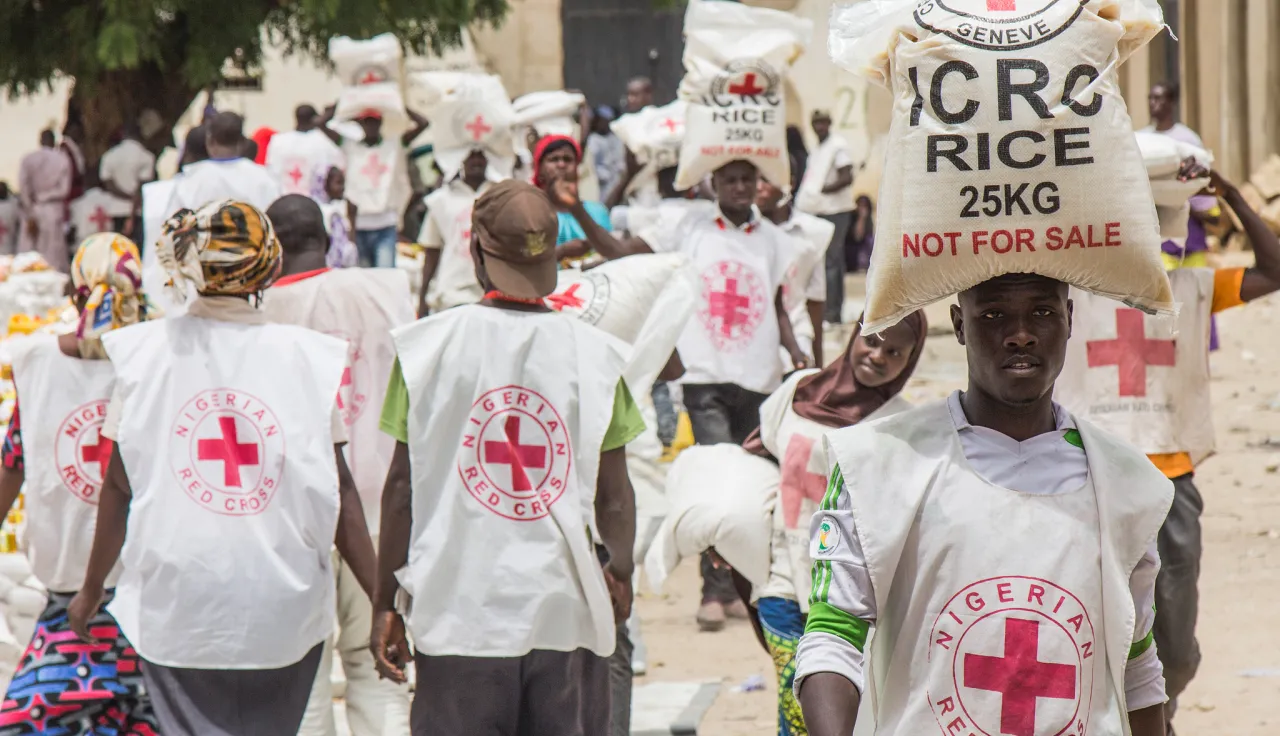
Hundreds of thousands of people have been displaced by the armed conflict in north-east Nigeria. The ICRC is significantly scaling up its efforts to help them, bringing food, essential household items, clean water, shelter and medical care to those most in need. We are also promoting compliance with the rules that protect people during armed violence and supporting the Nigerian Red Cross Society.
Highlights
Since the beginning of the year:
325,000
internally displaced persons (IDPs) have received food and essential household items
104,000
people have benefited from the ICRC's water, sanitation and hygiene operations
15
hospitals have received medical supplies so they could respond to mass casualty situations following explosions
1,500
free phone calls were made by people who had become separated from their families.
Emergency aid
325,000 IDPs received food and essential household items from the ICRC, working in cooperation with the Nigeria Red Cross Society. Most were in Adamawa, Borno, Edo, Gombe and Yobe states.
8,700 families who had fled the violence and have now returned to their communities received food, maize seed and fertilizer to help them restart their lives in Mubi, Plateau and Kaduna states.
1,500 widows affected by the armed conflict received assistance from the ICRC.
Shelter, water and sanitation
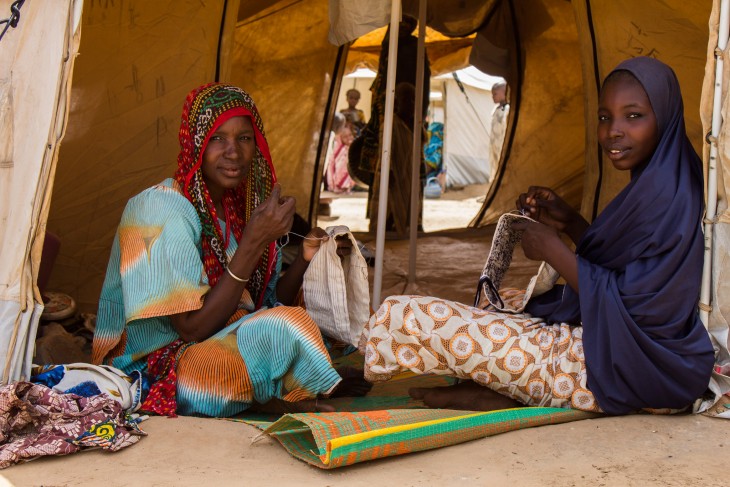
Around 1.5 million people have sought refuge in Maiduguri after escaping violence in the north-east of Nigeria. Many have lost everything on the way. CC BY-NC-ND / ICRC / Jesús Serrano Redondo
The ICRC is renovating or upgrading water points and improving sanitation in communities affected by the violence, and in camps and sites for displaced persons. We are also building emergency shelters and providing tents for IDPs.
 |
104,000 people benefited from ICRC water, sanitation and hygiene operations |
 |
7,600 IDPs in Yola and Maiduguri received tents, shelters or roofing materials |
 |
130 latrines were built in camps for displaced people in Maiduguri |
Restoring family links
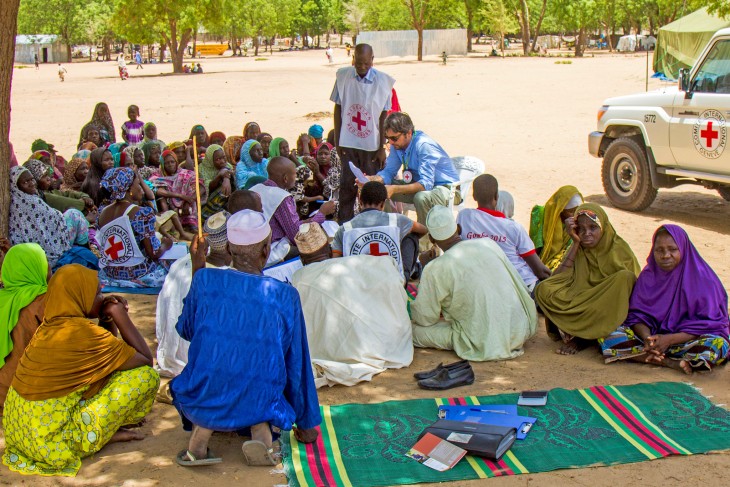
The situation of people displaced by armed violence in north-east Nigeria is extremely difficult, especially for women, children and the elderly. The Restoring Family Links Team in Maiduguri has been working with displaced communities at the Federal Training Camp to help people find out what has happened to their relatives. CC BY-NC-ND / ICRC / Jesús Serrano Redondo
Hundreds of thousands have left home, often losing contact with their families. The ICRC and the Nigerian Red Cross Society (NRCS) are working together to help family members contact each other, reuniting them where possible, all over the Lake Chad region.
 |
The Red Cross enabled people separated from their families to make a total of 1,490 free phone calls |
 |
The ICRC and the NRCS received requests to trace 1,143 people. |
Health

The ICRC is helping the State Specialist Hospital in Maiduguri to treat the victims of bombs and bullets. CC BY-NC-ND / ICRC / Jesús Serrano Redondo
 |
The ICRC is supporting 10 primary health centres in Borno and Adamawa States by renovating premises, providing medical supplies and equipment and training staff. Between them, these 10 centres serve 380,000 people – both IDPs and residents. |
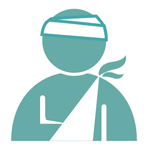 |
246 people received treatment from the ICRC surgical team in Maiduguri State Specialist Hospital. Most had been injured by bomb explosions or suffered gunshot wounds. |
 |
140 Nigerian surgeons and emergency room staff underwent training in the management of people who have suffered weapon wounds and in emergency response during mass casualty incidents. |
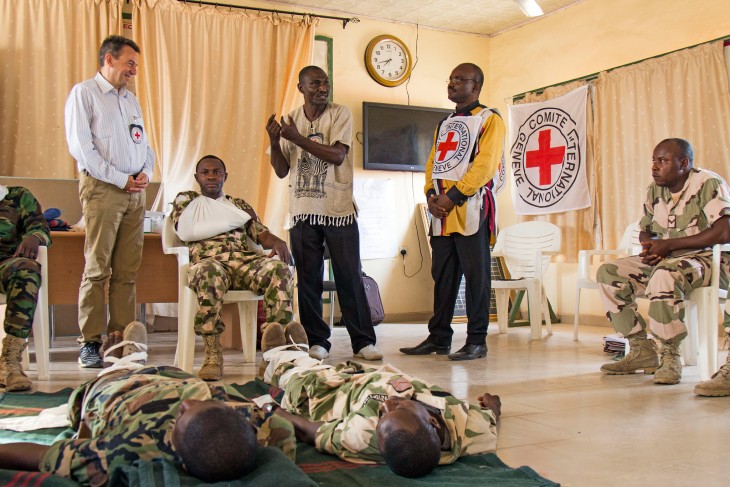
During a visit to Maiduguri, ICRC president Peter Maurer attended a first-aid training session for the Nigerian Army. More than 2,400 people living in violence prone areas have received first-aid training from the ICRC and the NRCS. CC BY-NC-ND / ICRC / Jesús Serrano Redondo
International humanitarian law
The ICRC gave presentations to 1,000 personnel at military and police training establishments. All heard about the work of the ICRC, with military personnel also learning about IHL and other rules applicable during military operations and police officers learning about human rights law.
Thousands of people, including personnel from the civilian authorities, community and religious leaders, students and the people we are helping, learned more about the Red Cross, the Fundamental Principles of the Red Cross/Red Crescent Movement and international humanitarian law.
Detainees
We visited people held in prisons and in both military and police detention facilities.
The ICRC in Nigeria
We operate in the north-east, the middle belt and the Niger Delta states, with offices in Abuja, Damaturu, Gombe, Jos, Kano, Maiduguri, Port Harcourt and Yola.




